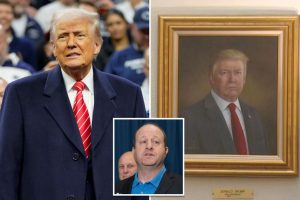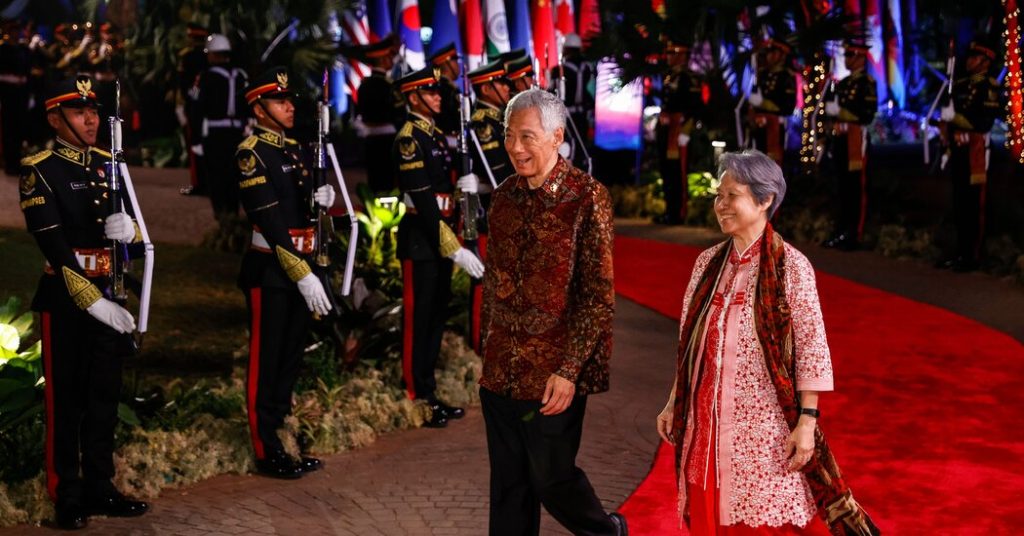Singapore has undergone a significant transformation under the leadership of Lee Hsien Loong, the country’s third prime minister, becoming a glitzy international destination that is substantially richer than the United States. He followed the semi-authoritarian and free-market model established by his father, Lee Kuan Yew, the country’s first leader. On Wednesday, Lawrence Wong, the deputy prime minister, will take over as the new leader of Singapore. Concerns have been raised that the “Singapore model” is failing many citizens, as the city-state faces high living costs, lack of social mobility, and tight control over freedom of expression.
Lee Hsien Loong showed flexibility and responsiveness during his time in office, but the People’s Action Party (P.A.P.), which has governed Singapore for over six decades, has seen a decline in popularity. The party remains firmly in power, with Lawrence Wong taking over as the new leader. He has tried to project an everyman image and the outgoing prime minister will stay on as “senior minister.” Singaporeans have been expressing their discontent with the government in recent years, as they feel that the system has favored the wealthy over the working class, resulting in a lack of opportunities for social mobility.
The P.A.P. is known as one of the most dominant political parties in the world, with the government transforming Singapore into a first-world nation and a key player in global maritime trade. Despite its successes, the party’s share of the popular vote has been declining, with the opposition winning a record number of seats in the 2020 election. Discontent has been growing among the population, with many like Choo Yi Hung feeling that opportunities for social mobility are becoming increasingly limited, unlike the experiences of previous generations.
Lee Hsien Loong made some significant changes during his tenure, including repealing a colonial-era law that banned consensual sex between men. However, public discussions of race and religion remain controlled, and the government is still combative with its critics. The incoming leader, Lawrence Wong, has been seen as a non-traditional type of leader, which has been encouraging for some. Despite facing public feuds with his siblings and scandals within the party, Lee Hsien Loong leaves office as a popular leader who has connected with the people of Singapore on a personal level.
In his final speech, Lee Hsien Loong warned that political change could threaten Singapore’s prosperity, emphasizing the need for a stable political system to prevent the city-state from running into trouble. While he has brought some changes to the country during his time in office, there are lingering concerns about the viability of the “Singapore model” and the impact it has on different segments of the population. The incoming leader, Lawrence Wong, will have to navigate these challenges and address the growing discontent among Singaporeans as he takes on the role of prime minister.




